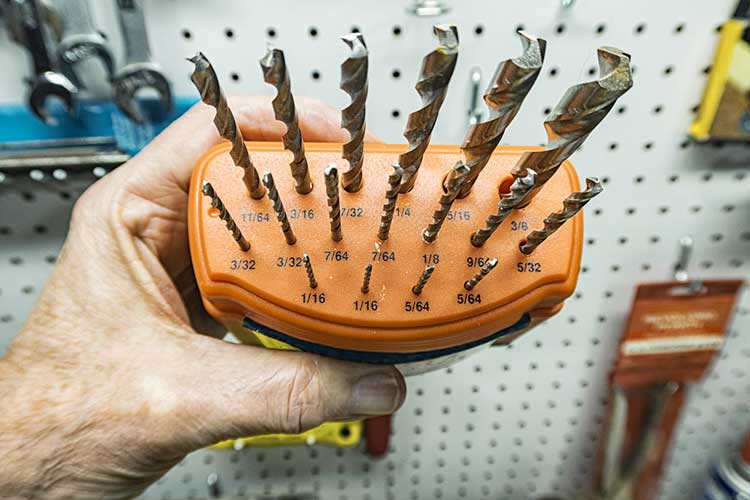Last updated January 2025
Fluent in Wrench
The single tile that detached from your kitchen backsplash. An “easy to install” closet system with hundreds of parts and instructions that seem written in hieroglyphics. That Kentucky-shaped water stain on the ceiling.
Your home probably has many things that need to be repaired. But you may not have the skills, tools, or time to do them. That’s where a handyman service comes in. The best to-do-list outfits have workers who can install just about anything, have the tools for an infinite number of tasks, and provide prompt, courteous service.
But Consumers’ Checkbook receives many complaints about handyman services that do shoddy or incompetent work. Many consumers also feel they overcharge.
Looking for help? Here’s our advice for choosing a top-notch home helper without overspending.

Make a list.
When you contact a handyman service, provide as many details as you can about your job. Know that some companies won’t perform some tasks, such as painting, while others avoid specialized work like electrical, plumbing, or masonry. Some services accept only small projects; others work only on multiday remodeling jobs. A list of tasks is also essential for getting a price quote or even a rough time estimate, and will help you determine whether companies will need to drop by to see the job and draft written cost proposals.
Ask about areas of expertise.
Workers often have strong backgrounds in some areas—say, carpentry—and know enough to do small jobs related to other trades. If your list consists primarily of projects related to one type of work, ask prospective companies if they have workers with expertise in that area. We get many complaints from consumers who hire jacks-of-all-trades but get workers who don’t have the knowledge or skill to complete work satisfactorily.
Beyond simple jobs, there’s little reason to hire a handyman service to perform specialized work. If you need plumbing help, hire a plumber—or an electrician for electrical work, or a tiler for tiling.
Check ratings and references.
Ask friends, neighbors, and colleagues for recommendations. Also ask companies for references from former customers who live near you, for jobs done within the past year or with other particulars that force them to reach beyond standard sets of two or three satisfied customers (or relatives).
Check on insurance.
Anyone you hire to work in or around your home should carry general liability and workers’ compensation insurance. General liability covers damages if, for example, a ladder smashes through your (or your neighbor’s) window. Workers’ comp covers injuries if a worker falls off a ladder. If the company doesn’t have these coverages, you could be stuck paying claims.
Try to get a fixed price.
Some handyman services work on a fixed-price basis for all jobs, regardless of size; others provide fixed-price quotes, if requested, but sometimes for only medium-sized and large jobs; and still others work only on a time-and-materials basis, billing according to their hourly labor rate plus charges for items supplied.
We believe a fixed price is always preferable. Knowing in advance exactly what you’ll pay eliminates the possibility of future disputes—and helps you shop around for a fair price. It’s especially important to get a price commitment in advance for small remodeling jobs or other multiday projects. To save time, email or text pics of the work area—along with a detailed description of the job—to prospective companies, and ask for price proposals.

Can’t get a fixed-price quote? Ask about hourly rates and minimum charges.
Ask about companies’ hourly labor rates and how many workers are included in the rates (some send two people to every job). Also ask about minimum charges. Many handyman services have minimums of two hours or more, and some tack on a half-hour of labor or more for travel time. If the jobs on your list can be done in an hour, don’t hire a company that charges a three-hour minimum. Because many handyman services bill labor charges in one-hour increments, have a few optional jobs ready in case you need to fill up the time.
When our undercover shoppers contacted a sample of area handyman services, they were quoted big price differences: For one hour of work, you can pay between $70 and $500; for six hours between $400 and $1,000.
The problem with using a company that charges on a time-and-materials basis is that some handymen work much faster than others. If you agree to pay on a time-and-materials basis, review your tasks with them as soon as they arrive, and ask them to commit to a final price.
Don’t assume that paying a higher price buys better work; it often doesn’t.
When it comes to home repairs, you don’t have to pay more to get more: We regularly find that low-priced companies are just as likely to do good work as high-priced ones.
Determine in advance who is responsible for providing materials.
Many handyman services charge for the time workers take to go out and shop for needed items.
If you are willing to buy and pick up the materials yourself, you avoid paying for shopping and pickup time. But you may find it inconvenient, strenuous, and time-consuming to haul a load of bricks, a few large sheets of plywood, or similar items. And if you buy the wrong stuff there will be a holdup—that you likely will pay for—once workers arrive. If the company will be doing the shopping and buying, get it to commit to the time and cost for that task; some will agree that there will be no extra charge.
Agree who will be responsible for the cost of the materials.
Most companies will agree that they will give you receipts for all materials they purchase for your job and charge you only what they paid. An advantage of having the company make the purchases is that it may get contractor discounts.
Get a written agreement.
A written agreement benefits both parties: The company knows the limits of the project, and you know what to expect. When drafting an agreement, be as specific as possible. If a new French door is to be installed and painted, the agreement should stipulate the type of door, where it will be purchased, who will buy it, whether it will be primed and painted and how many coats, the lockset that will be installed, whether the doorway will be weather-stripped, and that it will properly clear carpet or rugs when opened.
Include language that work areas will be left broom clean, and, if possible, make material disposal part of the company’s job.
Pay only when the job is complete to your satisfaction.
Avoid companies that require large deposits or advance payment. If your job requires a lot of materials, and the company is responsible for buying them, it’s reasonable for it to ask you to put up a deposit. Otherwise, arrange to pay for all work only when the job is done. This gives you leverage to make sure work is done properly, and it’s another reason why a fixed-price arrangement works in your favor: A set fee means a company can’t charge for additional hours spent correcting errors.
Be prepared, and deal promptly with surprises.
Clearing work areas in advance will help get the job started right. Handymen are there to be handy, not to move furniture or clear cabinets.
Also, deal promptly with problems and, if necessary, ask for amended pricing. Essential materials may be unavailable; dry rot may be exposed, requiring more work than planned; outside work might be halted because of foul weather. Understand that no one can anticipate every possibility.


